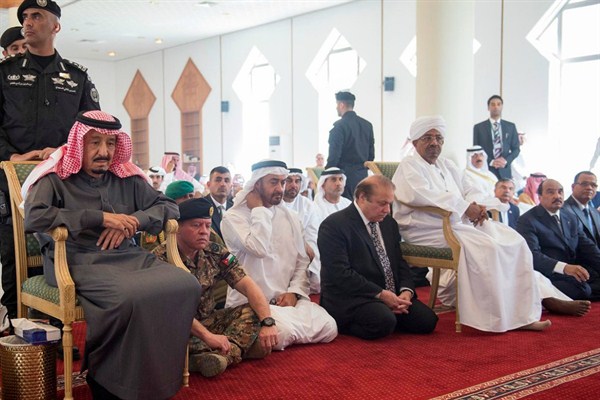Sudan and Saudi Arabia are currently holding a joint air force drill that reportedly involves hundreds of air force personnel from both countries. It is the first such drill since Sudan joined the Saudi-led coalition in Yemen in 2015. In an email interview, Alex de Waal, a Sudan expert and research professor at the Fletcher School of Law and Diplomacy at Tufts University, explains how ties have developed between the two countries and why both sides approach the relationship with caution.
WPR: Historically, what has been the nature of ties between Saudi Arabia and Sudan, and how have they evolved in recent years?
Alex de Waal: Sudan and Saudi Arabia have historically been close, trading across the Red Sea, and Sudan has been the principal transit point for African pilgrims en route to Mecca. The treaty demarcating the maritime boundary between the two, negotiated in the 1950s, is a model of cooperation.

